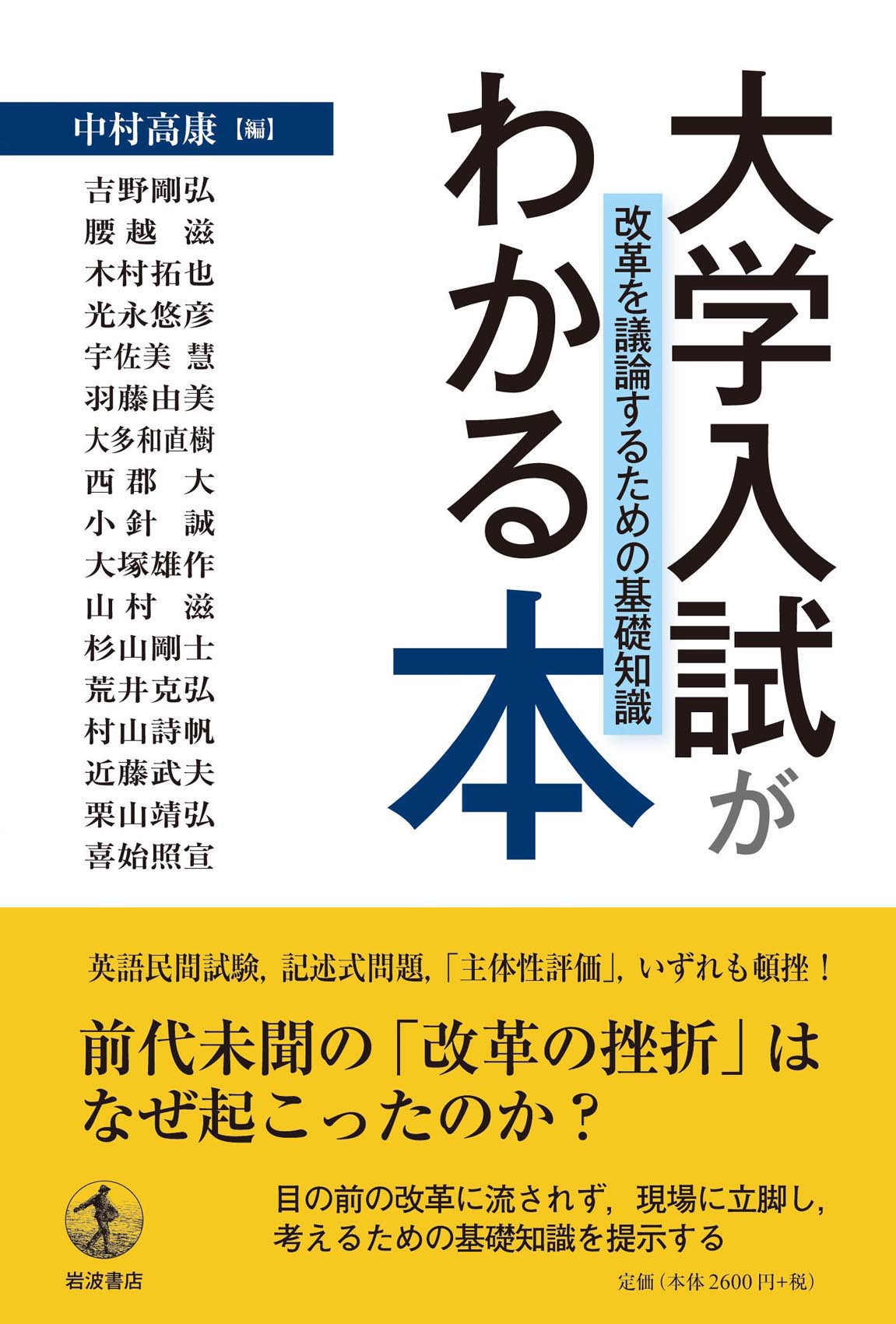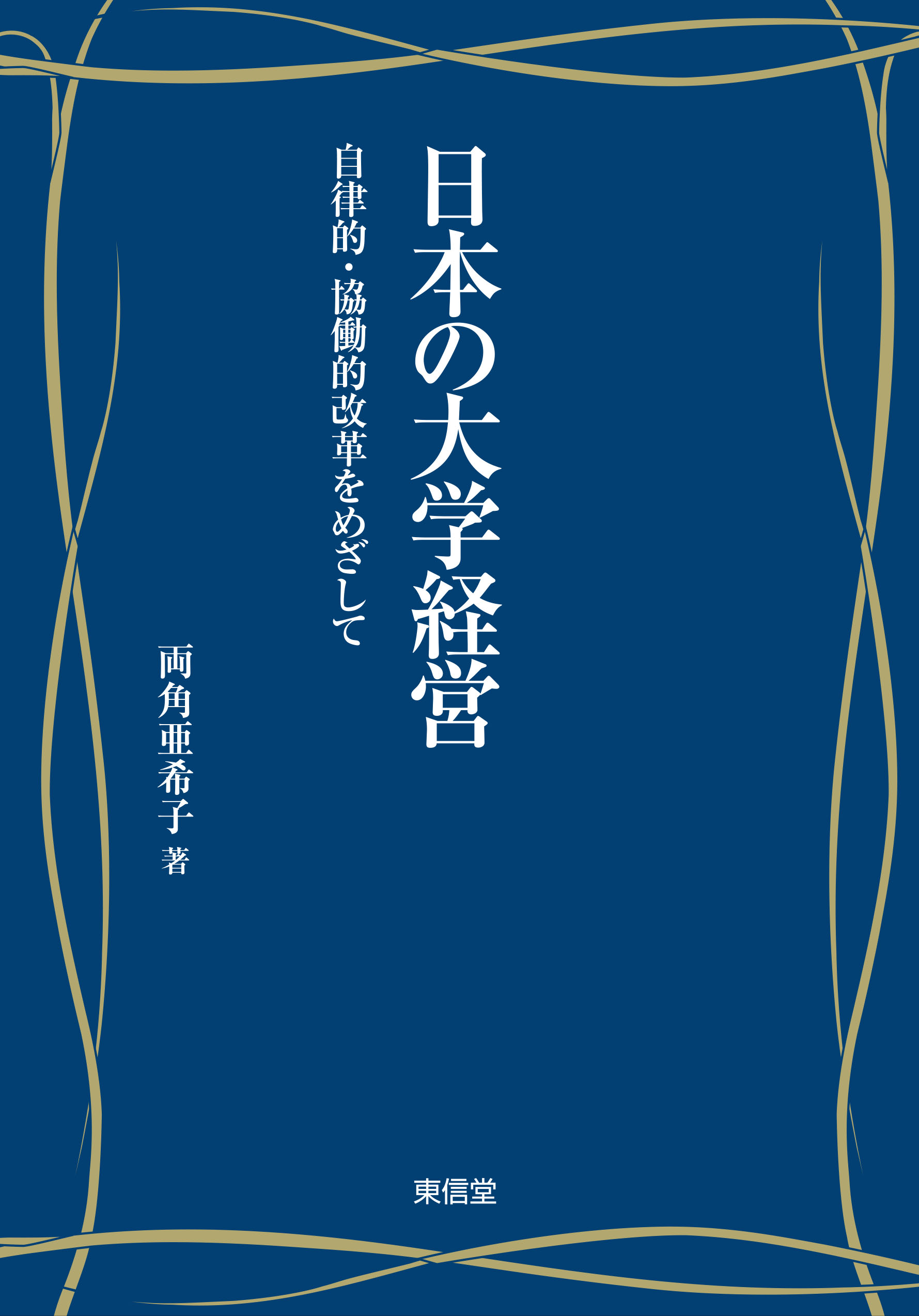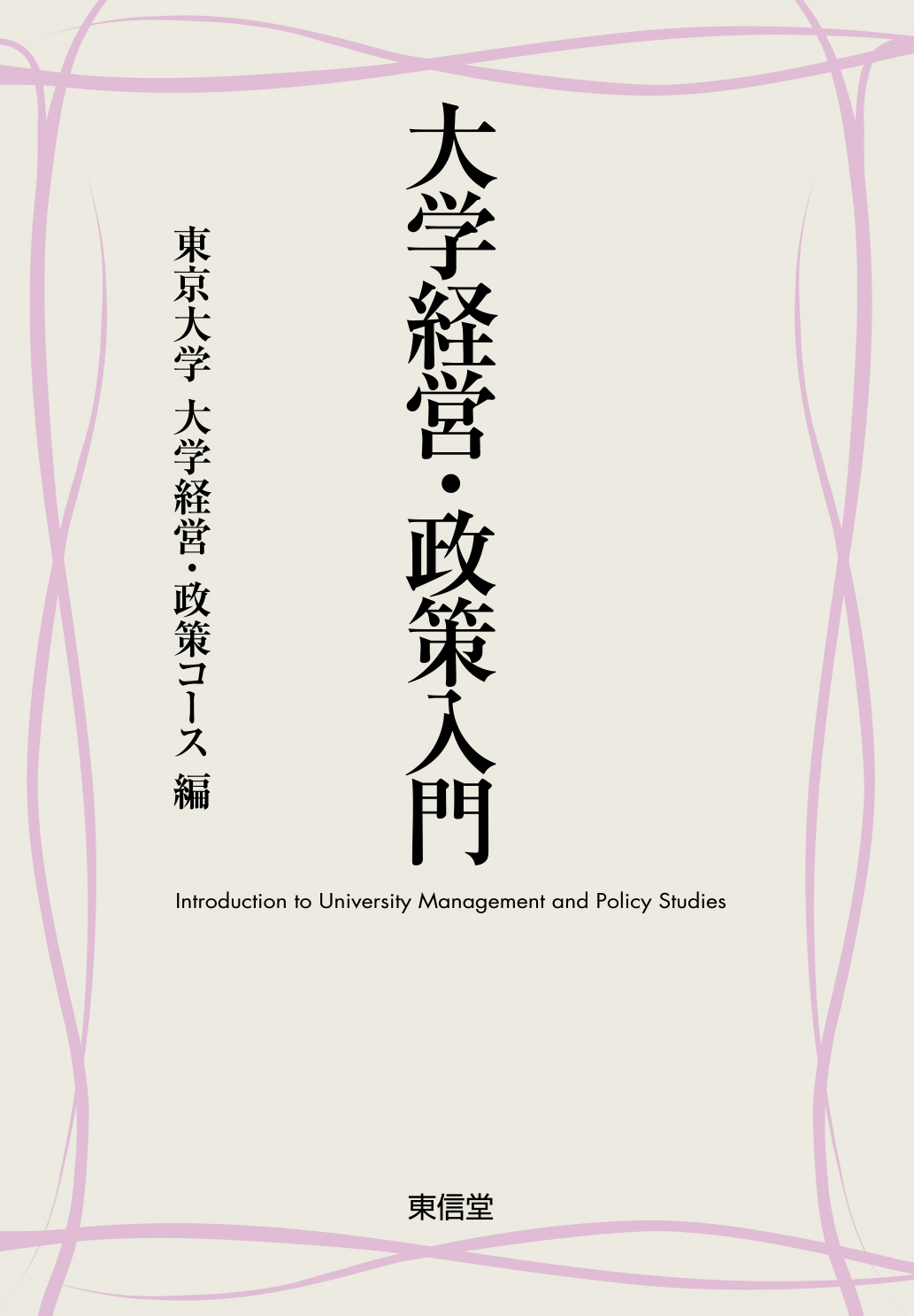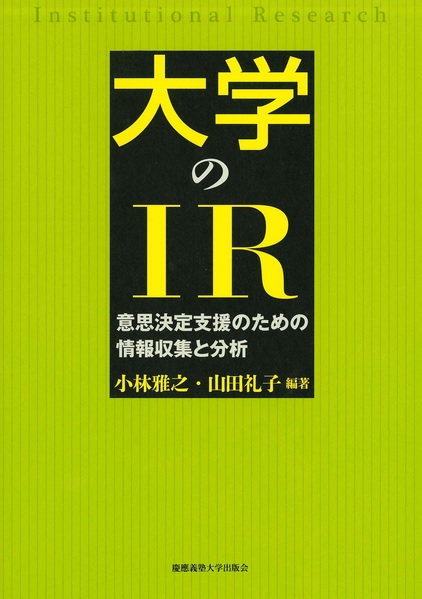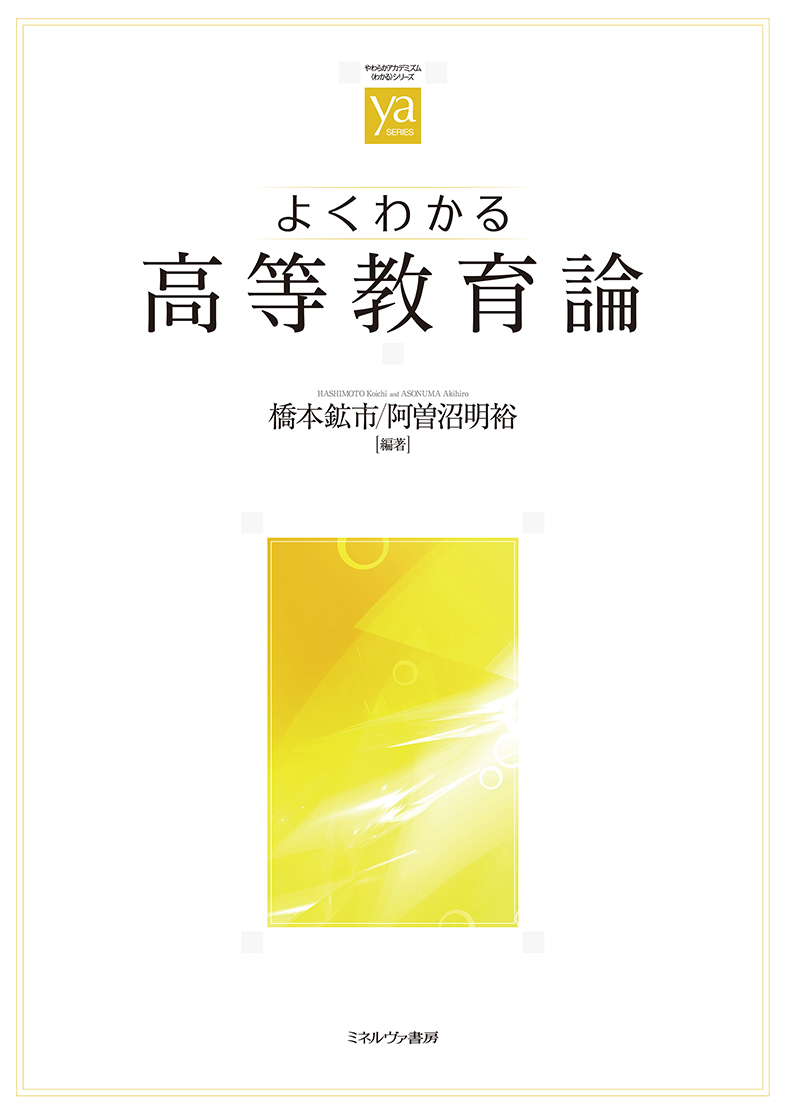
Title
Yawaraka Academism Series Yokuwakaru kotokyoiku ron (An Introduction to Higher Education Studies)
Size
214 pages, B5 format
Language
Japanese
Released
April 30, 2021
ISBN
9784623091133
Published by
Minerva Shobo
Book Info
See Book Availability at Library
Japanese Page
In the past, universities used to focus exclusively on the training of leaders of society. Consequently, only a handful of people, elite members of society, attended universities. However, many people study at universities today. Universities did not always attract public interest when they served exclusively as elite-training institutions. When people began to attend universities in increasing numbers, the emergence of an “educational credential society” attracted wide public attention, and student selection came under critical scrutiny. Furthermore, as the massification of higher education progressed, many citizens began to be directly involved with universities. Universities became indispensable social institutions responsible for knowledge production and human-resource development in tandem with the progress of information society and knowledge society. As a result, universities have also become increasingly important objects of investigation and analysis.
The above development is a worldwide phenomenon. In Japan, university enrollment rate further increased in the 1990s, but many universities face financial difficulties because of under-enrollment associated with a decline in the number of 18-year-olds. Universities cannot expect much increase in public subsidies because the government is facing financial difficulties of its own. Moreover, the Japanese economy has been in deflation for a prolonged period, and the utility and professional relevance of university education as a means of fostering human resources are being critically examined. Meanwhile, it has been highlighted that Japan’s international standing has declined in terms of research activities. Thus, Japanese universities are under pressure to implement reform and revitalize their education and research.
Universities and higher education institutions find themselves in a difficult situation even though they are indispensable in society. Various issues regarding the state of universities and higher education today need to be identified, analyzed, and discussed. However, knowledge about universities and higher education, which is prerequisite for such an initiative, has not been widely disseminated. This book is designed to establish an intellectual foundation for this endeavor. Thus, the scope is not limited to the issues of entrance-exam competition or educational credential society. The book is structured in such a way that it provides the requisite expert knowledge to examine a wide range of issues related to contemporary universities and higher education. It deals with entrance, graduation, and the process in between (educational functions and content), as well as the organizations, institutions, and systems that support these activities, and policies, governance, and finances. It also addresses the history of universities and provides international comparisons. In addition, it deals with topics such as globalization, the world of researchers, and the relationship between universities and society, to help the reader further understand the characteristics unique to Japan.
This book targets members of the general public who are interested in higher education. However, its structure and content are such that it can be used as a textbook for a university course on higher education studies. Nevertheless, it should be noted that the field of higher education studies is not a mature discipline consisting of many elaborate theories at this time. The development (institutionalization) of an academic discipline requires academic societies as communities of researchers, and the establishment of courses and successor-training programs at universities. While textbooks are also essential, there have only been a limited number of accessible textbooks that comprehensively cover higher education studies since there is a relative lack of classes or courses on higher education studies at universities in Japan. This book serves as a textbook for undergraduate students specializing in this field of study. However, the content is sufficiently clear for first- and second-year students. It is hoped that this book will pique students’ interest in issues related to universities and higher education and that there will be more people studying these issues at a deeper and specialized level.
(Written by ASONUMA Akihiro, Professor, Graduate School of Education / 2023)



 Find a book
Find a book


